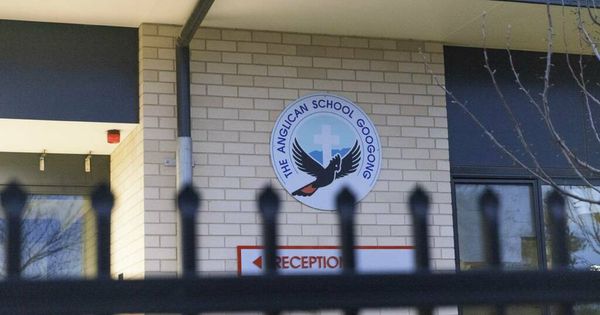A leading charity warns thousands of children in flood-stricken parts of NSW are missing out on crucial support, as exhaustion from the disaster is compounded by sub-standard living conditions.
Year 12 student Luke Elley is trying to juggle the pressures of his HSC and his role as school captain, all while living in a house with four other flood-affected families.
When his home in the state's north was inundated by a torrent of water from the Richmond River six months ago, all of his school notes were destroyed.
He said he was just starting to get his head back into his studies.
"School is definitely at the bottom of the list [of priorities]," he said.
"I speak for a lot of people who went through it, for about two months school and education were not on our minds at all."
Evans River K-12 Principal Rob Walker said a majority of students at his school were affected by flooding, with a significant number still living in tents and caravans or staying with friends and family.
"I don't think we can overstate the scale of this issue for our area," Mr Walker said.
"These students are just focused on day-to-day survival.
"They are not sleeping in their normal environments and they won't be for some time."
Staff feel 'hopeless'
Temporary housing arrangements are a struggle for staff too, making statewide teacher shortages particularly challenging in the Northern Rivers region.
For six days at the height of the floods in early March, Evans River downed tools as an education facility and became an evacuation centre for flood victims being boated in from nearby towns.
School staff ran the centre in six-hour shifts, providing 1,500 meals a day and care for displaced people and their pets.
Student support teacher Jennifer Joy was one of about 30 teachers at the school who lost their own homes and possessions in the floods, which in many cases included their teaching resources.
Six months after spending 23 hours on the roof of her neighbours' shed waiting to be rescued, she is still using a makeshift kitchen and bathroom in the yard of her property at Bungawalbin.
"I feel tired," she said.
"With the system that we are in, I feel a little bit hopeless.
"I know that people are working hard to find solutions but it doesn't seem to be close and so that's exhausting and can be demotivating."
'Missed opportunity'
Save the Children has estimated around 4,000 school-aged children in the region need intensive support, and criticised both the NSW parliamentary inquiry and the NSW independent flood inquiry for ignoring the needs of children in the wake of the floods.
The organisation's NSW director Catherine Harris said such an oversight in the inquiries' recommendations would be to the detriment of children for decades to come.
She said there was a lot of evidence showing school-based programs were highly effective for reducing mental illness and supporting children in their recovery.
"We really feel that there was a missed opportunity in the findings," Ms Harris said.
"If we don't deal with children's needs, it has a long-term, reverberating impact across the community because those critical three years post disaster will set kids up for life."
Government responds
A spokesperson for the Department of Education said the NSW government had allocated more than $1.7 million in wellbeing support from its Flood Recovery Package for school communities.
They said the department had engaged a range of additional measures to support students, such as additional counsellors through headspace and tele-psychology services.
They also cited the recruitment of 16 locally based Student Support Officers, and supporting the wellbeing of principals and teachers to build resilience in the community.
The NSW Education Standards Authority (NESA) said its flood support program, announced in April, was offering tailored support for individual schools and resources for teachers.
NESA said students had been given extensions to hand-in dates, and those granted illness and misadventure status would receive either a moderated school assessment mark or their actual exam mark – whichever was higher.










